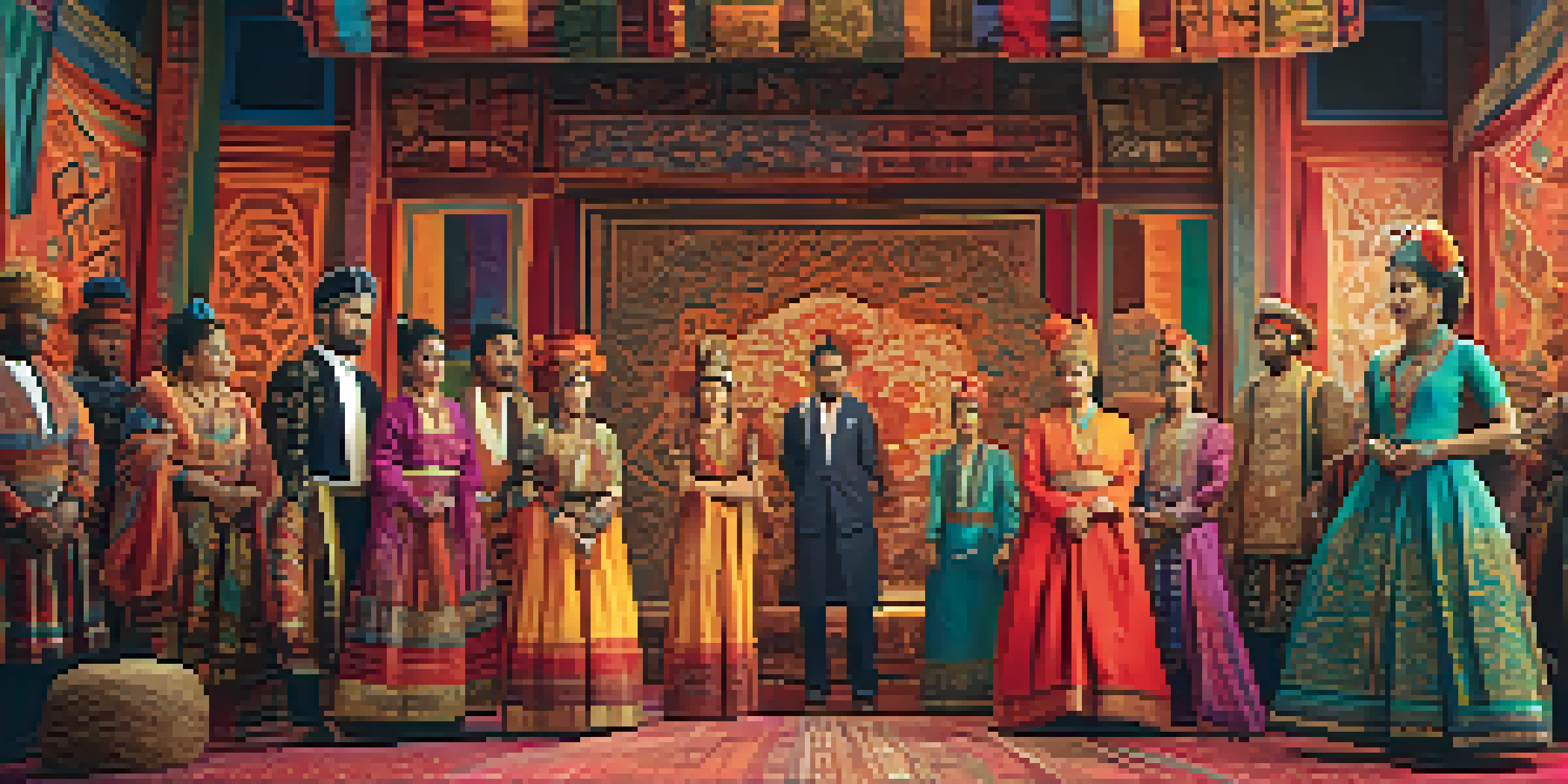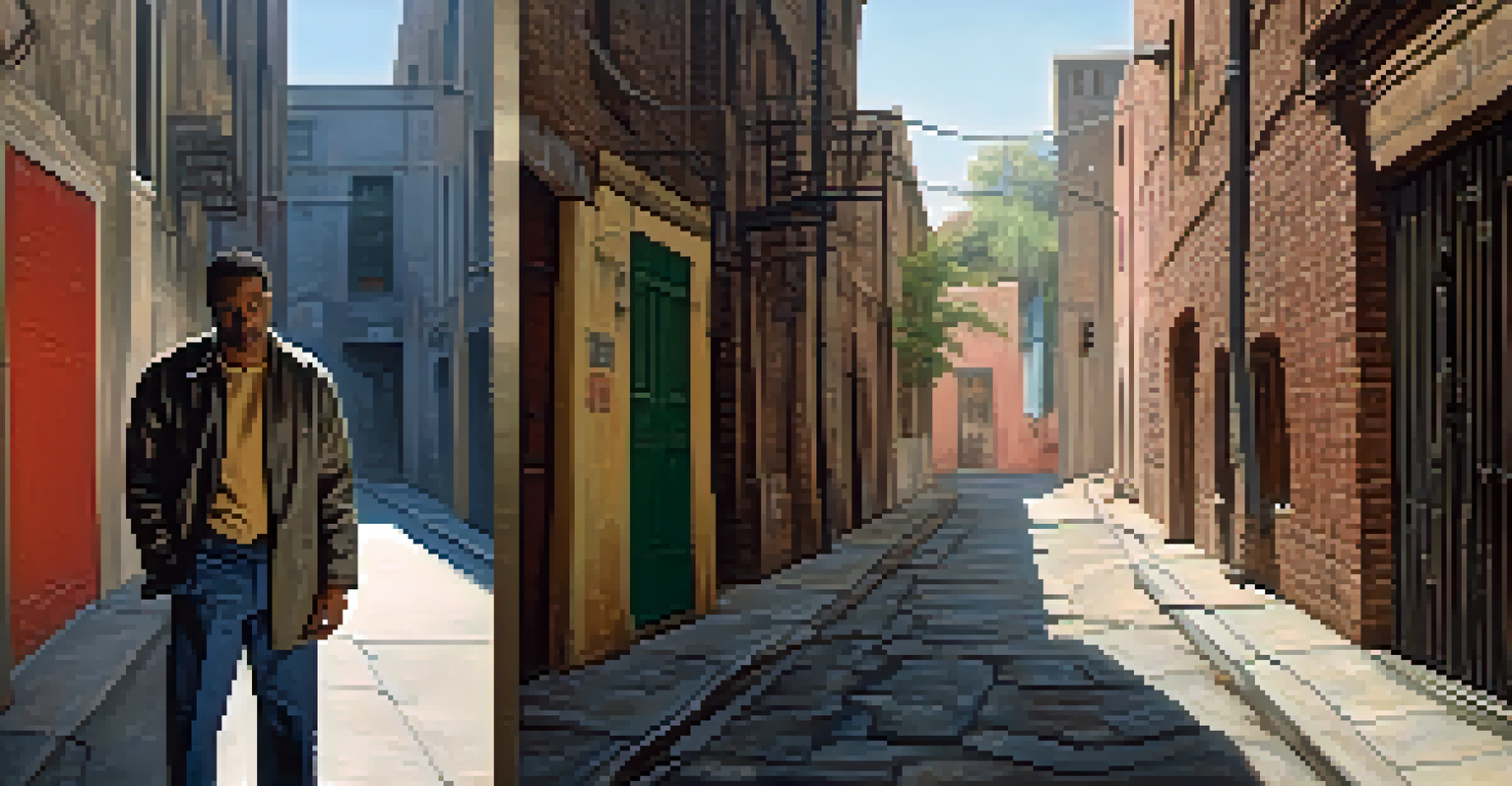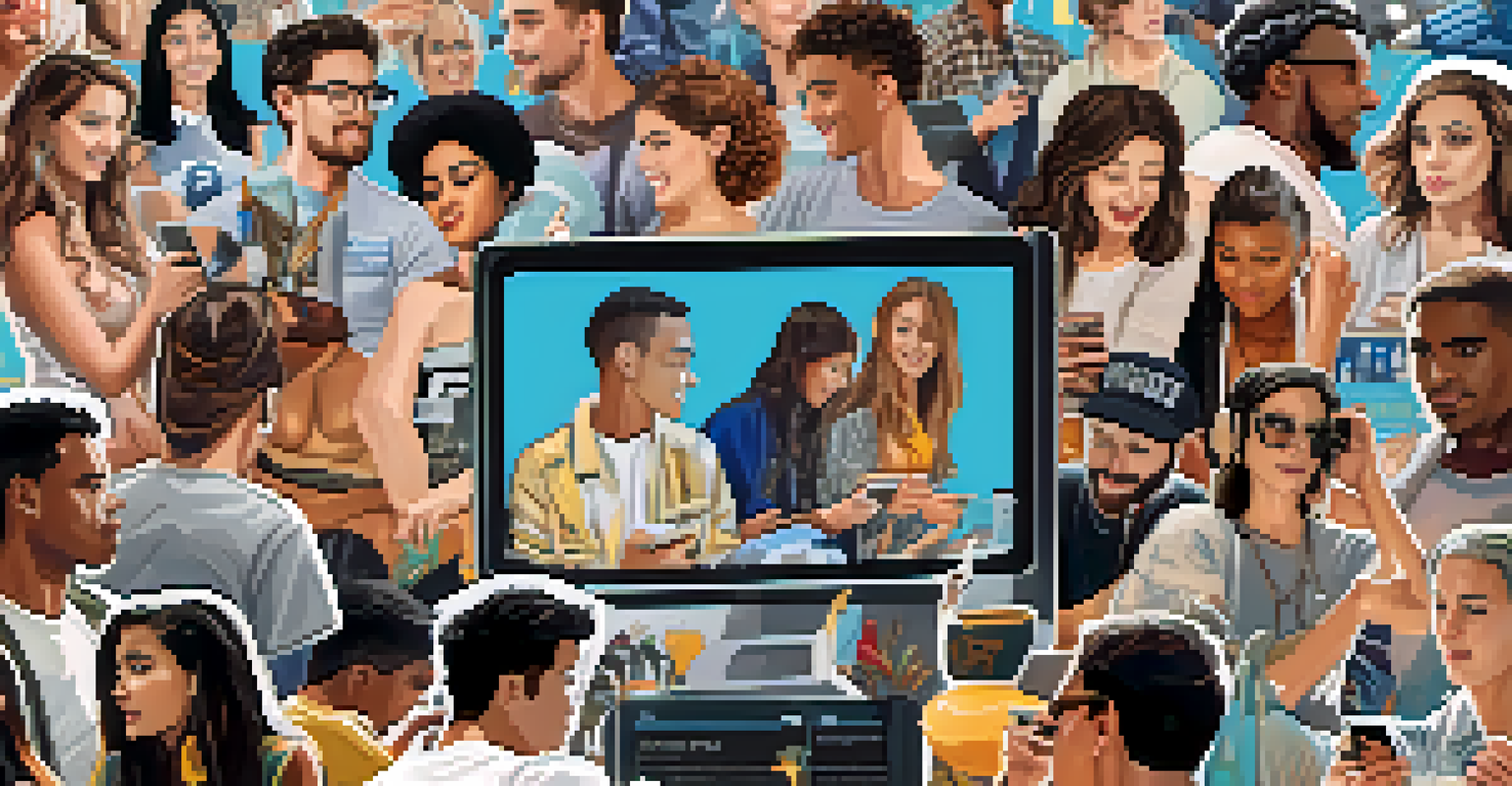Hollywood's Stereotypes: A Global Influence on Cultures

Understanding Stereotypes in Hollywood Films
Hollywood films often rely on stereotypes to convey character traits quickly. For instance, the portrayal of certain ethnic groups can simplify complex identities into easily digestible clichés. This reliance on stereotypes can lead to a narrow understanding of diverse cultures, reducing rich histories to mere caricatures.
Stereotypes are not just harmless tropes; they can shape perceptions and attitudes toward real people.
These character archetypes are not just harmless tropes; they can shape perceptions and attitudes toward real people. Think about the way a villain is often depicted as foreign or the way certain professions are associated with specific ethnicities. Such portrayals can reinforce biases and create misconceptions that last long after the credits roll.
Moreover, stereotypes in Hollywood can have a ripple effect, influencing how audiences from different cultures perceive each other. When viewers see a particular group represented in a certain way, it can lead to generalizations that aren't reflective of reality. This not only impacts the individuals represented but also the broader cultural conversations.
The Impact of Hollywood on Global Cultures
Hollywood's reach extends far beyond the United States, influencing global cultures in profound ways. Many countries import American films, which often means that Hollywood's values and ideas about identity trickle into local narratives. This can create a homogenized view of culture that may overlook local traditions and nuances.

For example, in countries where Bollywood traditionally dominated, Hollywood films have begun to shape storytelling methods and character development. This blending can be both enriching and problematic, as local filmmakers might feel pressured to conform to Western standards of success and storytelling.
Stereotypes Shape Cultural Perceptions
Hollywood films often rely on stereotypes, which can distort audiences' understanding of diverse cultures and reinforce harmful biases.
As audiences around the world consume Hollywood content, they may begin to adopt the stereotypes portrayed. This can lead to a misunderstanding of the original cultural contexts and even foster cultural appropriation, where elements from one culture are used without regard for their significance. The challenge lies in balancing appreciation with respect for originality.
The Role of Social Media in Amplifying Stereotypes
In today's digital age, social media plays a crucial role in how stereotypes are perceived and propagated. Clips from Hollywood films can go viral, often highlighting specific stereotypes that resonate with audiences, sometimes for comic relief or dramatic effect. This instant sharing can perpetuate harmful narratives at an alarming rate.
The challenge lies in balancing appreciation with respect for originality.
Moreover, the commentary surrounding these clips can further entrench stereotypes, as users engage with content that reinforces their existing beliefs. Social media creates echo chambers where these stereotypes can thrive, often drowning out more nuanced discussions about representation and diversity.
However, social media also offers a platform for counter-narratives. Voices from marginalized communities can challenge Hollywood's portrayals, creating a more balanced dialogue about representation. This duality of social media highlights the ongoing struggle between harmful stereotypes and the push for authentic representation.
The Evolution of Representation in Hollywood
Over the years, there has been a gradual shift in how Hollywood represents different cultures. Movements advocating for diversity and inclusion have prompted filmmakers to rethink character development and storytelling approaches. This change reflects a growing awareness of the impact that media representation can have on society.
For instance, films like 'Black Panther' and 'Crazy Rich Asians' showcase protagonists from underrepresented backgrounds, challenging the status quo. These films not only offer fresh narratives but also allow for deeper explorations of culture, identity, and community, moving beyond the simplistic stereotypes of the past.
Social Media Amplifies Stereotypes
In the digital age, social media can rapidly spread stereotypes from Hollywood films, but it also provides a platform for marginalized voices to challenge these narratives.
Despite this progress, challenges still remain. Many Hollywood productions still struggle with tokenism, where diverse characters are included but lack depth. The industry must continue to push for authentic representation to ensure that all voices are heard and respected.
The Effects of Hollywood Stereotypes on Youth
Young audiences are particularly impressionable when it comes to media consumption. The stereotypes depicted in Hollywood films can significantly shape their views on race, gender, and identity. For example, children might internalize the idea that certain ethnicities are either heroes or villains based solely on what they see onscreen.
These early impressions can lead to long-term biases and influence social interactions. A child who sees certain stereotypes repeatedly might carry those views into adulthood, perpetuating cycles of misunderstanding and prejudice. It highlights the responsibility that filmmakers have when creating content aimed at younger audiences.
Educational initiatives have emerged to combat these issues, encouraging critical thinking about media consumption. By teaching children to analyze the content they consume, we can foster a generation that questions stereotypes rather than accepts them unconditionally.
Global Reactions to Hollywood's Stereotypes
Around the world, audiences are responding to Hollywood's stereotypes in various ways. Some cultures may embrace these portrayals, seeing them as a way to connect with global trends, while others actively reject them as damaging misconceptions. This dynamic creates a rich tapestry of cultural dialogue surrounding representation.
In countries like South Korea, local filmmakers have begun to push back against Hollywood's narratives by creating films that present their own cultural stories authentically. This response not only challenges stereotypes but also showcases the depth and diversity of local narratives that deserve recognition.
Future of Hollywood Focuses on Inclusion
As the demand for authentic representation grows, Hollywood is gradually shifting towards more inclusive storytelling, though challenges like tokenism persist.
Conversely, there are instances where Hollywood stereotypes have been adopted, leading to a blending of cultures that can sometimes dilute authenticity. This ongoing negotiation between acceptance and resistance highlights the complex relationship between global audiences and Hollywood's portrayals.
The Future of Representation in Hollywood
Looking ahead, the future of representation in Hollywood seems to be leaning toward inclusivity, but there is still much work to be done. Filmmakers and creators are increasingly aware of the need for diverse voices in storytelling, recognizing that true representation goes beyond just casting. It involves telling stories that resonate with authenticity and respect.
As audiences continue to demand change, we can expect more films that challenge traditional stereotypes and offer complex characters. The rise of streaming platforms has opened doors for independent filmmakers, allowing for stories from diverse backgrounds to emerge and gain visibility. This shift could lead to a more enriched cinematic landscape.

However, the industry must remain vigilant against slipping back into old patterns of representation. Continuous dialogue around stereotypes, cultural authenticity, and the importance of diverse voices will be crucial in shaping a Hollywood that reflects our increasingly interconnected world.